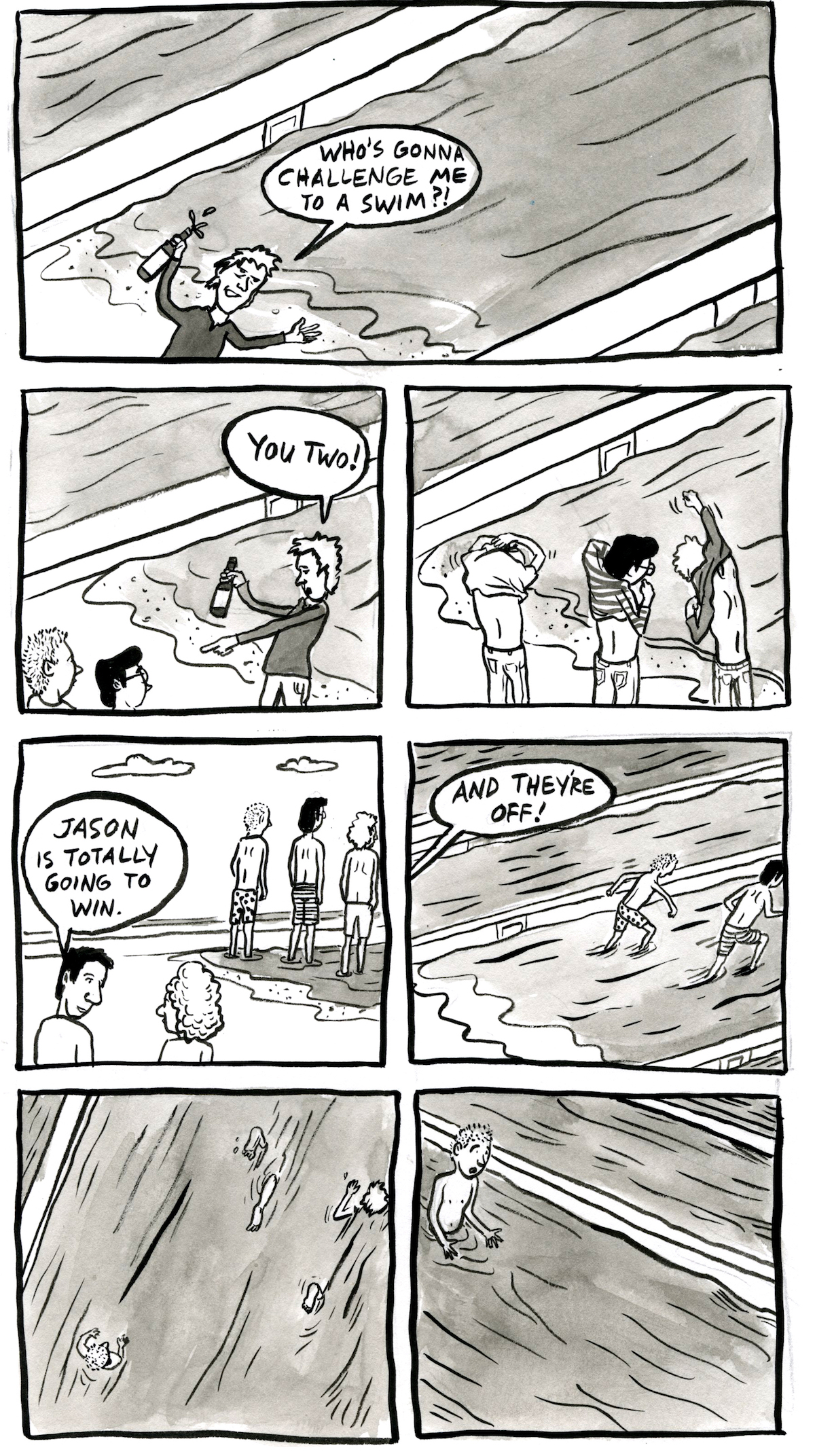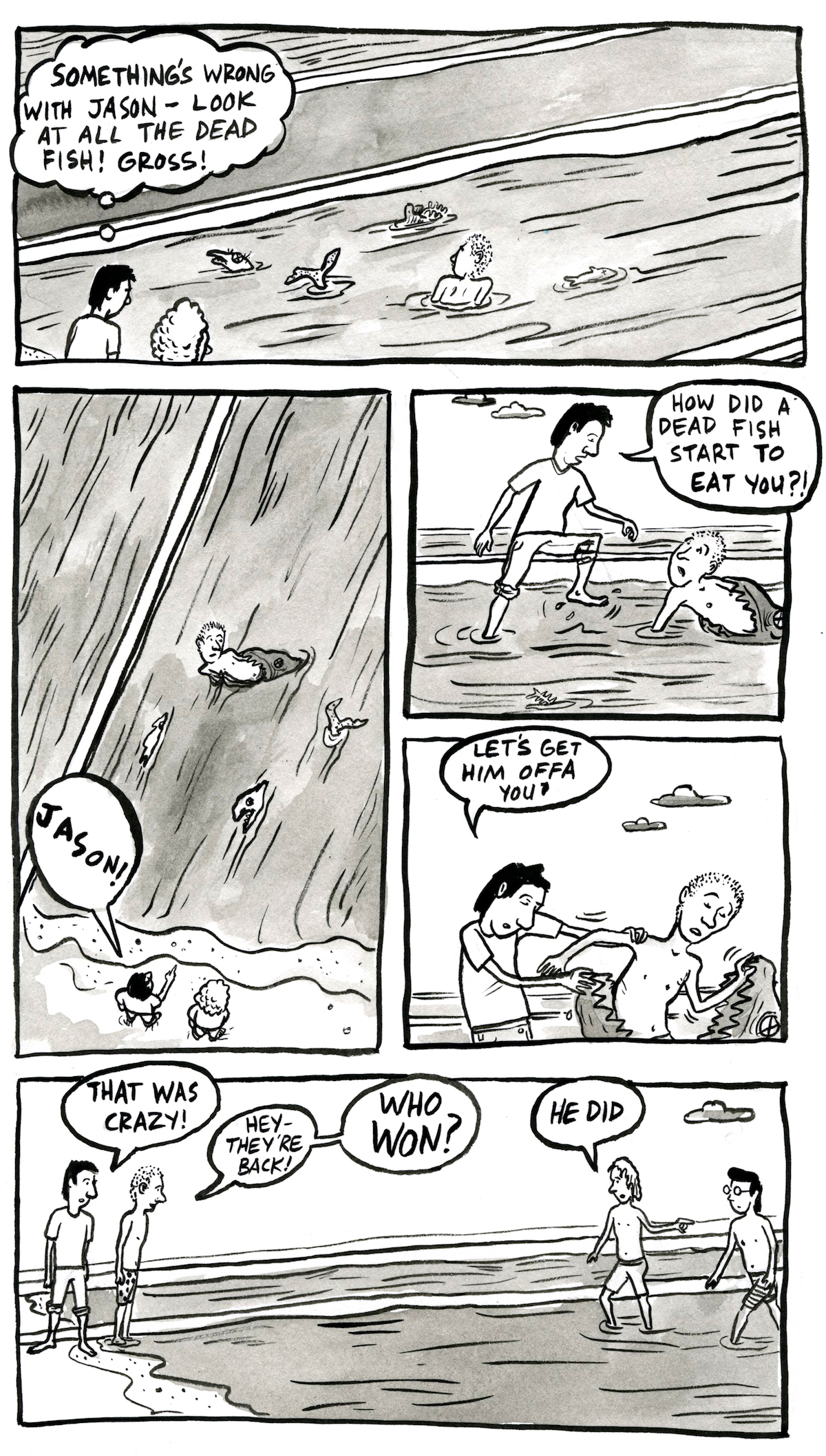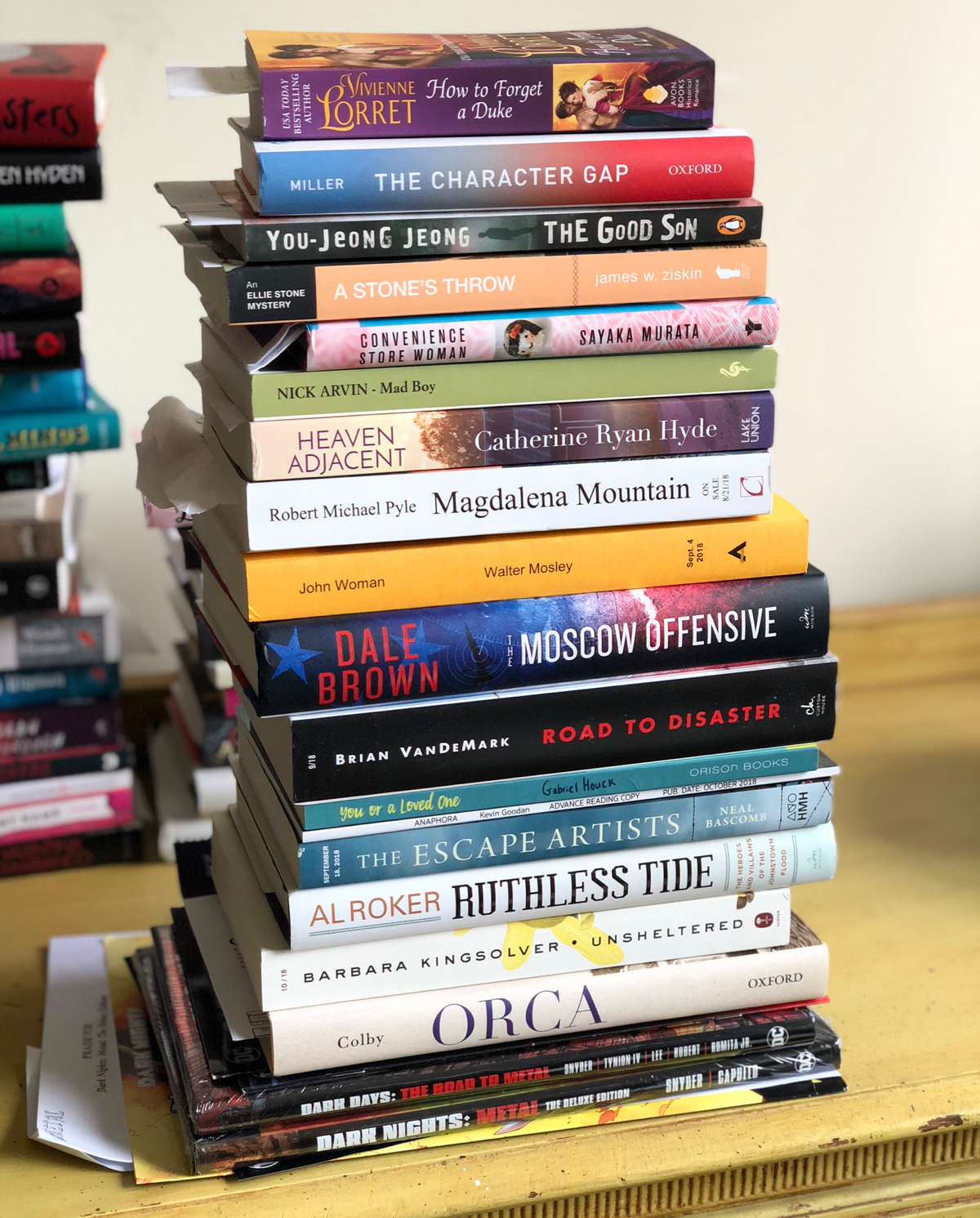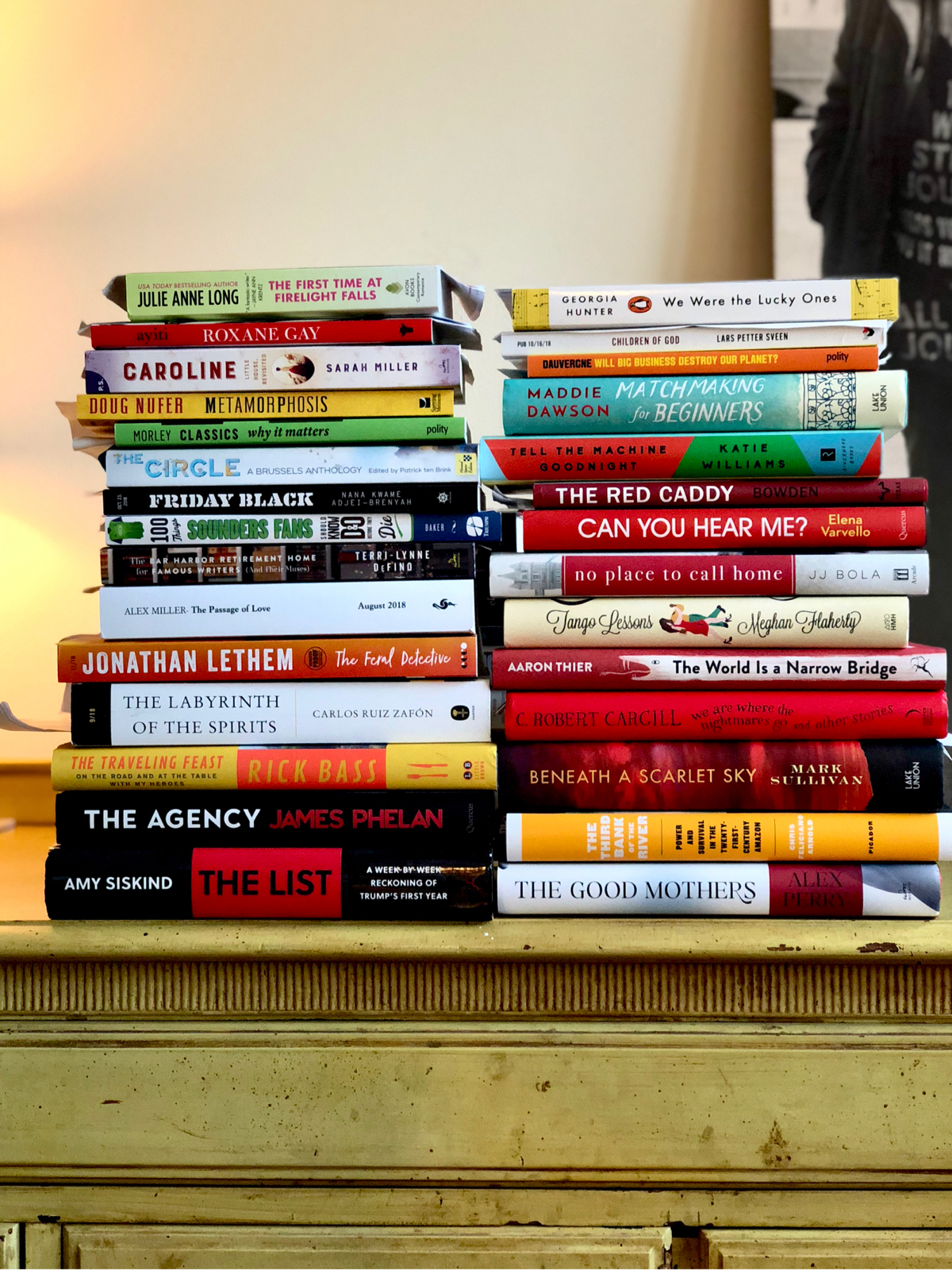The Help Desk: My child has a spanking problem
Every Friday, Cienna Madrid offers solutions to life’s most vexing literary problems. Do you need a book recommendation to send your worst cousin on her birthday? Is it okay to read erotica on public transit? Cienna can help. Send your questions to advice@seattlereviewofbooks.com. Cienna is on vacation; the following is a reprinted column from 2015.
Dear Cienna,
I’m a single dad and my ten-year-old daughter apparently found my copy of Story of O. She confessed after I found her posing Barbie over Ken’s lap for a spanking. How the heck am I supposed to explain something as complex as power fantasies to her, or at the very least help her from seeing her dad as a big creep?
Ermine, University District
Dear Ermine,
Awhile ago I met a nice Christian woman who believes sex before marriage is amoral but regularly masturbates her male dog before competitions because she says it relaxes him. I asked, but no: she is not married to her dog.
My point is people compartmentalize sex in individually weird ways. Reading Story of O doesn’t make your daughter damaged or you a creep – in my book, nothing short of competitively masturbating your pet in public while praying for the salvation of sluts does.
It’s not your job to explain power fantasies to your daughter. It’s your job to buy her ice cream and tell her that what she read was fiction and a bit above her reading level. Then, it’s your parental duty to purchase a copy of The Joy of Sex and give it to a cool female friend to give to your daughter (trust me, no young woman wants to get a sex manual from her dad). My grandmother bought me the Joy of Sex when I was about 10 and once I got over the horror of being handed a sex thing by a near dead thing, I treasured it (sex ed in Idaho in the 90s doubled as our “Faces of Meth” campaign). Hopefully your daughter will stop snooping through your erotica as she practices hundreds of new positions to put Barbie and Ken in, all while developing an appreciation for diverse body types and prize-winning bushes.
Just keep her away from your dog.
Kisses,
Cienna
Portrait Gallery: Poet Quenton Baker
Each week, Christine Marie Larsen creates a new portrait of an author or event for us. Have any favorites you’d love to see immortalized? Let us know
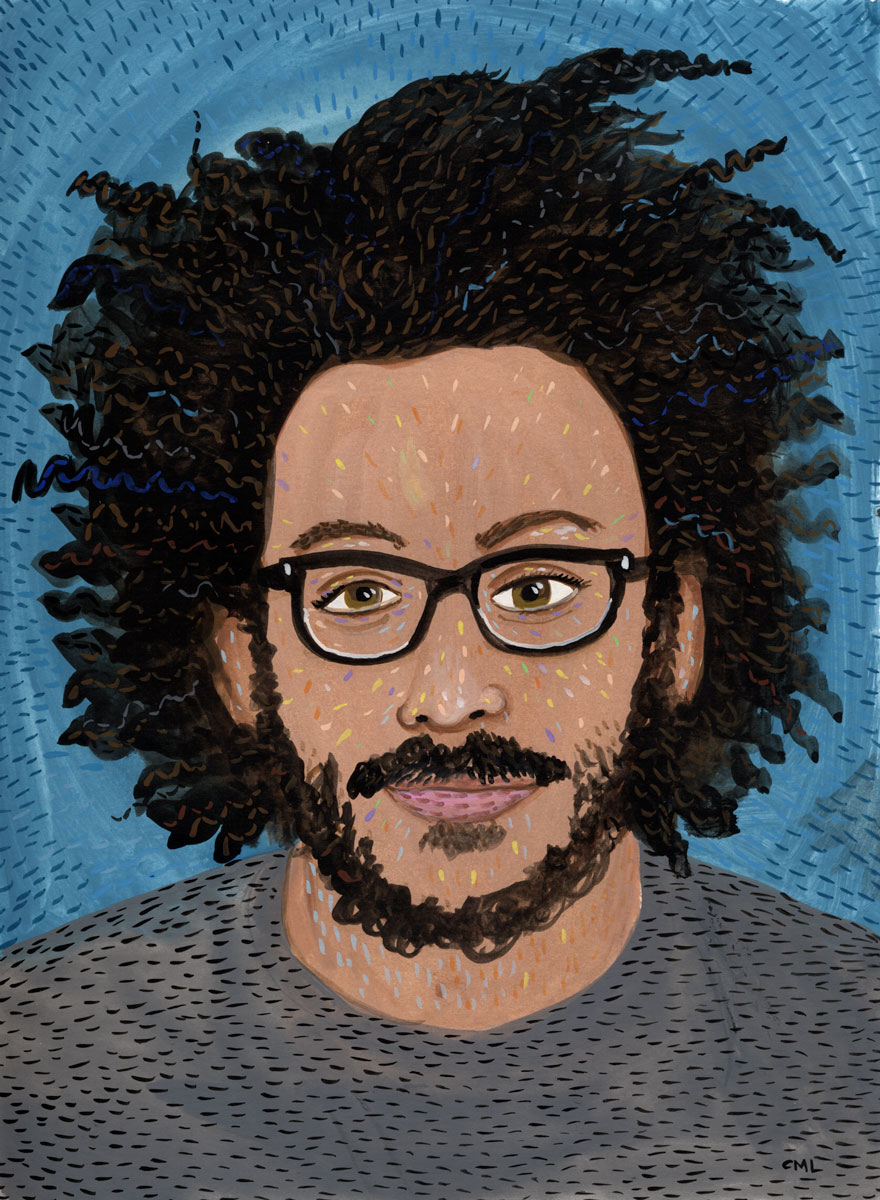
Friday, May 25
Stellar Poets from Near and Far!
Enjoy an evening of poetry with this stellar lineup of poets: Derrick Weston Brown, Bennie Heron, Bettina Judd, Quenton Baker, and Anastacia-Reneé.
Open Books, 2414 N. 45th St, 633-0811, http://openpoetrybooks.com, 7 pm, free.
Criminal Fiction: the sounds of violence
Every month, Daneet Steffens uncovers the latest goings on in mystery, suspense, and crime fiction. See previous columns on the Criminal Fiction archive page
Reading around: new titles on the crime fiction scene
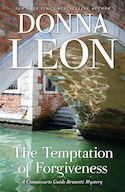
There’s something incredibly pleasurable about walking streets of Venice with Commissario Guido Brunetti as he ponders the good and the bad in people — and savors his any-time-of-day coffees — with a lovely, wry, and gentle humor. With nearly 30 Brunetti mysteries under her belt, Donna Leon is an old hand at skillfully blending the police procedural with the personal lives and interactions of her detective, his friends, family and colleagues: in The Temptation of Forgiveness (Grove), this blend is particularly seamless as a familial acquaintance of Brunetti’s drops by the station to share her concern that her son is buying drugs at school. Before you can say “coincidence much?”, a man is found in the street, unconscious, who turns out to be her husband and the boy’s father. The game, as they say, is very much afoot.
Tangerine by Christine Mangan is the kind of novel that the phrase “deeply atmospheric thriller” was made for. This assured and impressive debut, set partly in 1956 Tangier, partly in collegiate Vermont a few years earlier, tracks the arc of a friendship between two young women, Alice Shipley and Lucy Mason. They meet as college housemates and develop a friendship that’s both amiable and fraught with an underlying intensity; the ensuing tangle of emotions when Alice embarks on a relationship with a young man inevitably has a disrupting effect. But then, so does Lucy’s unexpected appearance in Morocco a year later, where Alice is living with her louche and ne’er-do-well husband. The dust, spices, souks and cafes of Tangier offer a tempting backdrop to a story that remains urgently compelling beyond its final page.
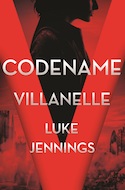
BBC America’s Killing Eve, currently getting terrific play, is based on Codename Villanelle by Luke Jennings (Mulholland), an espionage thriller that features two indomitable women. Villanelle is a sociopath and highly-trained assassin with an appropriately bleak backstory; Eve Polastri is an MI5 operative, blindsided by one of Villanelle’s high-profile murders, who vows to track the killer down. You can see in this initial book of a series how a TV version would fire imaginations: two smart, powerful women, playing a game of cat-and-mouse, and, in the case of Villanelle, with no expenses spared: her designer-name, haute-Parisian life-style is made for visual translation, as are the searingly brutal action scenes.
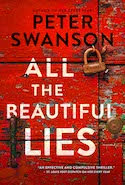
Peter Swanson finesses his increasingly dark characters in All the Beautiful Lies (William Morrow). His fourth thriller features femme fatales a-plenty, as new college graduate Harry Ackerson discovers that his father has died suddenly and a bit mysteriously. The father owned two used bookstores and loved crime fiction, and there are some wonderful literary references – including Agatha Christie, natch – as well as an fun embedded nod to a contemporary crime novelist. All this and distinct, provocative shades of Lolita, to boot.
The Quintessential Interview: Laura Lippman
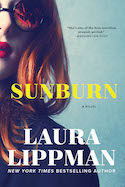
Lippman’s latest novel, Sunburn, is rightfully garnering accolades from fellow authors and readers alike. Inspired partly by the James M. Cain classics The Postman Always Rings Twice, Double Indemnity and Mildred Pierce, Sunburn radiates a sensationally cool noir vibe all its own, shimmering with a relentless undercurrent of danger, violence, sex, and heartbreak. The author of more than 20 novels, including a killer series featuring Baltimore PI Tess Monaghan, Lippman, originally from Baltimore, now divides her time between that city and New Orleans.
What or who are your top five writing inspirations?
The contract, the deadline, the deadline in the contract, the world, the idea currently uppermost in my mind.
Top five places to write?
Coffeehouses, dining room table, my own office, airplanes, hotel rooms. Yes, I prefer the dining room table to my office and I prefer planes to trains.
Top five favorite authors?
This question makes me feel like Paris, please don't make me answer it. I'm going to pick the wrong five and start a war.
Top five tunes to write to?
The sounds of silence and I don't mean Simon and Garfunkel's album. I can write amid great cacophony because I was a reporter, I can ignore music in coffeehouses, but I never choose to write to music.
Top five hometown spots?
Riverside Park, the Brass Elephant bar (circa 1992), Fort McHenry, Enoch Pratt Central Library (although it's currently under renovation) and Dickeyville, the beautiful neighborhood where I grew up.
Thursday Comics Hangover: Go climb Trash Mountain
Two days ago, former Seattle Weekly arts editor Kelton Sears made a very exciting announcement on Twitter:
I spent 2 years of my life making this longform GIF comic called Trash Mountain. You can see it at https://t.co/d2jNTanqWU. I hope you like it. You can view it on your phone, but it's best on a computer/tablet. Turn your sound on if you want the soundtrack. Warning: ~Male Nudity~ pic.twitter.com/tlbS61CZfU
— Kelvin Spears (@KeltonSears) May 22, 2018
Trash Mountain is now available to read for free at trashmountain.cool. It’s a GIF comic with an autoplay soundtrack, and it does contain some (highly cartoony) nudity, so you might not want to read it at work.
But you should definitely read it. This thing is beautiful: a blend of cartoons and comics and collage and photography. Our main character wakes up to find a stereotypical greedy CEO about to destroy his home for the sake of exploiting some natural resources.
The plot is incredibly simple — too simple, if I’m honest — but a comic like this is all about the journey, not the action. The sequence in which our protagonist tries to meditate on the surface of a gorgeous sunlit body of water only to be distracted by internal noise (a Facebook feed, a winking nude woman, a scrappy black cloud, a meta panel of him picturing himself picturing himself picturing himself) is a perfect example of why anyone should want to read a comic made entirely out of animated GIFs.
Trash Mountain takes a little getting used to: it’s hard at first to read a comic when every one of the panels moves of its own accord. But once you acclimate to the jittery rhythms of the book, the comic unfolds itself to you in a pleasantly soothing sort of way. The glitchy, trance-y soundtrack loops itself around and around again, and your eyes glide across the panels, like a babbling stream over rocks.
Ultimately, Trash Mountain is about finding your people, and fighting crass capitalism with tools of spirituality and authenticity. It’s a beautiful, strange book, an eternally moving handmade minicomic slapped up on the Worldwide Interwebbing, just waiting for its audience to come and find it. If you happen to be a Trash Mountain kind of person, this comic will sing to you in a language you never knew existed.
Seattle celebrated its City of Literature status with a hopeful party
Last night at the downtown library, dozens of people gathered to celebrate Seattle's admission into the UNESCO Creative Cities Network as a City of Literature. Authors, librarians, booksellers, and leaders of local literary organizations mingled and reflected on the five-year journey that led to the celebration.
Seattle City of Literature chairperson Stesha Brandon urged the people in attendance to reach outside their networks, to introduce themselves to people they didn't know. The organization is working to perform a full inventory of Seattle's literary resources, and I hope that once we can see the breadth and depth of the results of our literary census, the next step will be to bring people together in a meaningful way.
Claudia Castro Luna provided a sort of convocation for the event, greeting partiers with salutations in the languages of our sister Cities of Literature. And she also reminded us that we can't just celebrate our status: we have to keep working to live up to the expectations that a City of Literature title confers upon us.
Castro Luna said that Seattle is "a world-class city," but part of her definition of a world-class city is that it welcomes everyone, that "all can afford to live there." Seattle doesn't live up to that aspiration right now, she said, but "people are working on it," and she demonstrated faith that one day Seattle would again be an inclusive city, eagerly welcoming the world to our community. She didn't convey her wishes in the form of an opening prayer, but we still heard a lot of amens in that moment. We know now that the world believes in us. It's time to live up to that vote of confidence.
Take drugs. Not many. Mostly psychedelics.
Published May 23, 2018, at 12:00pm
In How to Change Your Mind, Michael Pollan turns his focused attention on the history, use, and potential of psychedelic drugs.
Talking storytelling in music with Tomo Nakayama
This Sunday at the Northwest Folklife Festival, Seattle singer/songwriters Tomo Nakayama and J.R. Rhodes will sing as part of a program titled “Kinfolk: Stories in Song.”
Nakayama is one of the most exciting folk musicians in Seattle right now, and his songs are intensely interested in narrative. He’s resistant to my suggestion that narrative is currently out of style in music. “It depends on the genre,” he says. “Folk music is especially built around storytelling and setting stories to music.”
He’s willing to admit that “maybe in the realm of popular music,” narratives aren’t as popular right now — it’s been decades since Top 40 radio was populated with storytelling music. Perhaps, Nakayama says, that’s because tech-addled attention spans reward artists who traffic in “shorter vignettes instead of sustained narrative,” but he thinks that story and song will always be combined in some way.
Nakayama believes that his authorial perspective has deepened over time. “I think I used to write kind of exclusively from a first-person point of view. And I guess I still do, but it’s less autobiographical now — less literal, maybe.”
“I think I’ve become more observational as I’ve gotten older,” he says. “When you’re younger, you think the whole world is about you.” But Nakayama has realized with time that “there’s only so much you can say about yourself before you get bored, and to just keep from running out of ideas you start to look around and observe the world around you.” Ultimately, even those observational stories share something about the artist: “through describing those things, you start to reveal things about yourself that you weren’t even aware were there.”
Who does Nakayama turn to when he wants to hear a good story-centered song? “Locally, Sera Cahoone is one of my favorite songwriters,” he says, also citing Seattle hip-hop artist DoNormaal. “People who tell their stories in a way that no one else can is really appealing to me.”
Why is it so important that Folklife is focusing on stories in song at this particular time? “Everything is so polarized right now,” Nakayama says, “and my songs aren’t overtly political in nature but I feel like what’s being lost in a lot of these conversations is just the basic respect for humanity.”
“So that’s really what my songs try to convey — little stories of people and of everyday life and reminding ourselves of what we have in common,” he says. Music works better than any other storytelling medium for Nakayama when it comes to “bringing it back to what our core values are as human beings.” Common experiences that inspire empathy in others, he says, is “the kind of story I like to tell.”
Philip Roth, 1933 - 2018
"He's a fine writer," Jacqueline Susann once remarked of Philip Roth, "but I wouldn't want to shake hands with him." Susann was most likely referring to Roth's earlier, more sexually audacious work like Portnoy's Complaint. It's an understandable comment — Complaint is a book surrounded by a very particular kind of notoriety. It may have put Roth on the literary map, but if Roth continued to write horny little novels about sleazebag men throughout his career, we likely would have forgotten about him a long time ago.
The internet is currently reconciling with the news that Roth passed away tonight at the age of 85. The words "literary lion" are being thrown around a lot right now, and I'm sure that some self-important men who don't read much have declared him the Greatest American Writer of All Time. Lord knows that people who firmly believe in The Canon have spent the last two decades howling over the grave injustice that Roth never won the Nobel Prize in Literature. I expect the hyperbole to increase to a fever pitch over the next few days, just as I expect the takedowns to start manifesting in the usual contrarian outlets by midmorning tomorrow.
The truth is that Roth is a complicated figure. In his work, he thoroughly examined the dysfunctional tradition of masculinity in the late 20th century, but he was also thoroughly trapped by that same tradition. He satirized self-important old men, but he was a self-important old man. He wrote important work about the most important and most aggravating contradictions of modern American life, and he was a victim to those same contradictions.
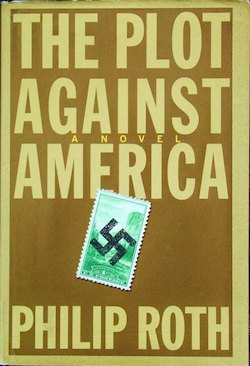
But it is very hard to dispute that American Pastoral and, especially, The Plot Against America are brilliant novels. I haven't reinvestigated it recently, but I expect that the dystopian alternate-reality plot of Plot feels even more relevant in the time of Donald Trump than it did on its publication during the era of George W. Bush. I don't believe in the Great American Novel as an overarching concept, but I do believe that in those two books, especially, Roth wrote a pair of great American novels.
Tonight, Roth belongs to history. I don't know what will happen to his legacy in the years and decades and centuries ahead. But if I had to place a bet, I'd say that even if historians look back on his work with a certain disgusted air — even if they refuse to shake his metaphorical hand — they'll still be discussing and analyzing and, yes, enjoying his work for a good long while.
Book News Roundup: The Bill Gates Book Club is now in session
Here's a friendly reminder that the Seattle City of Literature party is happening tonight at the downtown library. If you're not sure why this is a big deal, Brangien Davis, the arts and culture writer at Crosscut, interviewed me about why I believe Seattle's UNESCO Creative Cities status is so important.
Vladimir Verano, who created the Third Place Press shingle at Third Place Books, has struck out on his own. His new design and consulting firm, VertVolta Design & Press, will work with authors to create self-published books of professional quality. Send him an email for more information.
As per annual tradition, Bill Gates has released his top 5 books for summer reading. In this hugely overproduced video, Gates says he admires Abraham Lincoln "and the tough things he faced." I kid, but the books he selects are all pretty good:
- Meanwhile, great Seattle teacher and activist Jesse Hagopian has a suggestion or two for Bill's Book Club:
.@BillGates I see you just released your summer reading list. The new book I co-edited, "Teaching for Black Lives" wasn't on there. Given that your policies of over-testing & privatizing have negatively impacted Black students, please add it to the list. https://t.co/jGpLdAIsDc pic.twitter.com/KgvUxq4uo4
— Jesse Hagopian (@JessedHagopian) May 21, 2018
- It looks like Amazon's e-comics sales and distribution platform, Comixology, is getting into the comics publishing business. They've got a big announcement coming on June 1st, and Heidi MacDonald at The Beat seems to think they've signed up some big-name creators to produce work for them. Amazon hasn't really made much of a dent in traditional publishing with their in-house presses, but the comics industry has been held hostage by a monopolistic distribution model for decades now. Could Amazon take over the comics industry by bypassing comics shops? I'd give them pretty good odds.
The name of the wicked will rot
Published May 22, 2018, at 12:02pm
UW Professor Jessica Johnson reads at Elliott Bay Book Company tomorrow night. Her new book is about the homophobic and misogynistic evangelical church that held Seattle in its sway for years before it disappeared without a trace.
Map of the London Underground / Painted on a Miniature Cocktail Tray
From my room I retrace the intricate lace of maps,
trails of saffron and blue. I begin my storyanywhere, pull a thread of burnt sienna
to the Elephant and Castle,or travel a Circle to the Barbican.
The world submerged makes sense to me —the scent of a man’s Cadbury, the sound
of a voice asking please do not leave…I savor the place names of stations I have dreamed.
It’s what isn’t here that interests me.How this trinket tray adores deception —
provides a legend to the Angel,a lover for the Piccadilly train.
How this late 20th century souvenirkeeper of beach glass, tea bag, one tiny bell
creates more than any cartographer would tell.I lean toward a stranger, grey eyes reading
mine before the doors next open, slightlyclose, before we rise and go —
past a young girl offering Pucciniby the escalator’s puddled edge —
past travelers, erotic and unknown.How we must forgive a map its half-truths,
its absent streaks of grief,and arrive in a back-lit glance
to where time for one moment rinses clean.
An anything-but-ordinary book release
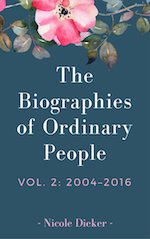
If you don't know Dieker's work already, get to know it: she's a co-owner of The Billfold, her website is an incredible resource for practical and honest info about the freelance writing life, and she hosts the Writing & Money podcast along similar lines. She's reading from Biographies at Phinney Books on June 6.
We can't thank Nicole Dieker enough for returning to sponsor again. Our sponsors make the Seattle Review of Books possible — while putting great books and events under our readers' eyes each week. Did you know you could sponsor us, as well? If you have a book, event, or opportunity you’d like to get in front of our readers, find out more, or check available dates and reserve a spot. We have some discounted dates available in July right now, and they'll go fast.
Your Week in Readings: The best literary events from May 21st - May 27th
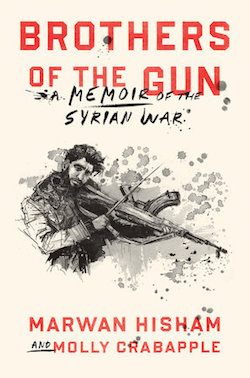
Monday, May 21: Brothers of the Gun Reading
The brilliant journalist and cartoonist Molly Crabapple recently illustrated Marwan Hisham's book Brothers of the Gun: A Memoir of the Syrian War. Tonight, Hisham will Skype into the reading from Turkey and he and Crabapple will discuss Syria, war, and what it means to report on war.Elliott Bay Book Company, 1521 10th Ave, 624-6600, http://elliottbaybook.com, 7 pm, free.
Tuesday, May 22: Seattle: City of Literature Party
See our Literary Event of the Week column for more details. Seattle Public Library, 1000 4th Ave., 386-4636, http://spl.org, 7 pm, free.Wednesday, May 23: Biblical Porn Reading
University of Washington anthropology professor Jessica Johnson reads from her new book Biblical Porn: Affect, Labor, and Pastor Mark Driscoll's Evangelical Empire, a scholarly look at the batshit crazy church run by a toxic masculine creep that basically took over Seattle not so long ago.Elliott Bay Book Company, 1521 10th Ave, 624-6600, http://elliottbaybook.com, 7 pm, free.
Thursday, May 24: Bushwick Book Club: The Handmaid's Tale
The Handmaid's Tale show on Hulu continues to be the most harrowing hour of television in the Trump era. Tonight, Seattle's most musical book group gathers to present new songs based on Margaret Atwood's depressingly prescient (depresscient?) sci-fi novel. Fremont Abbey, 4272 Fremont Ave N, http://thebushwickbookclubseattle.com, 7 pm, $10.Friday, May 25: Stellar Poets from Near and Far!
It's not exactly clear from press materials if this reading has a theme or a reason for existing like a new book release, but you don't really need a reason with a lineup like this: Derrick Weston Brown, Bennie Heron, Bettina Judd, Quenton Baker, and Anastacia-Reneé.Open Books, 2414 N. 45th St, 633-0811, http://openpoetrybooks.com, 7 pm, free.
Saturday, May 26: Daydreamin' Dave Release Party
Seattle cartoonist Ben Horak celebrates the release of his latest comic with an afternoon barbecue at the Fantagraphics Bookstore and Gallery in Georgetown. Daydreamin' Dave is a comic about a comic character who realizes he is in a comic book, and who then disappears from the comic book that he's ostensibly starring in. Fantagraphics Bookstore & Gallery, 925 E. Pike St., 658-0110, http://fantagraphics.com/flog/bookstore, 3 pm, free.Sunday, May 27: Chosen Country Reading
Remember those Bundy assholes who took over government land because they were pissed they couldn't steal government land anymore? James Pogue wrote a whole book about the dumbfuck Bundy rebellion and all the assholes who mistakenly thought they could take the law into their own hands.Third Place Books Ravenna, 6504 20th Ave NE, 525-2347 http://thirdplacebooks.com, 7 pm, free.
Literary Event of the Week: Celebrate Seattle's City of Literature status at the downtown library
Last October, the United Nation’s arts organization UNESCO officially named Seattle a City of Literature, officially making us one of the organization’s nearly 200 members of the Creative Cities network.
After that announcement, Seattle City of Lit, the local organization which put together the winning bid, effectively went dark for a while. I talked with board president Stesha Brandon about what they’ve been up to and what Seattle can expect from our UNESCO status in the months ahead.
“I think the main thing I’d say is we’re still in learning mode,” Brandon says. She recently represented Seattle at the annual City of Literature conference in Iowa City, which allowed her to meet and begin forming relationships with our 27 other sister cities in the literature designation. In June, she’s heading to Krakow to attend with the other 180 or so Creative Cities to “talk about topics like transportation and housing and the arts and how those things can impact each other.”
These conferences are important, Brandon says, because they allow us to see “some of the cool things other cities are doing.” She especially liked Edinburgh’s program of “putting poetry out in the public thoroughfare as something people engage with on their daily commutes.” When cities put poetry “in shop windows and on sidewalks,” she says, “then we’re not expecting people to go out of their way to engage with literature — we’re trying to engage them where they are already.”
Additionally, several of the other cities are hosting residency programs, so we’ll soon have the opportunity to send Seattle writers abroad and hopefully host sister city authors here in town in an effort to share Seattle’s literature with the rest of the world.
Tomorrow night—Tuesday the 22nd — Seattle City of Literature is hosting a party at the Central Library downtown. Brandon calls it a “pretty simple celebration,” an opportunity to “take a minute to celebrate the designation with the folks who make it happen and the community that it’s for.”
Seattle City of Lit will present some information about the designation and some plans for the future, but Brandon is most excited to hear about what you want out of the city’s UNESCO designation. “Folks will have an opportunity to talk to us,” Brandon says, and “hopefully they will share what they’re excited about and what they’re hoping” for Seattle as a City of Literature.
If you can’t make it to the party tomorrow night but you’d like to learn more about Seattle’s City of Literature plans, you should sign up for Seattle City of Lit’s newsletter, or follow them on social media.
But really, if you can, you should come to the party. Seattle City of Lit is just getting started, and people who get involved now can have outsized influence on the future of the organization. If you’ve been looking for a way to make your mark on the future of literature in this city, you won’t get a better chance than this.
The Sunday Post for May 20, 2018
Each week, the Sunday Post highlights a few articles we enjoyed this week, good for consumption over a cup of coffee (or tea, if that's your pleasure). Settle in for a while; we saved you a seat. You can also look through the archives.
Slow Pan
This essay by Bryan Washington is remarkable. It’s a poignant personal essay about growing up gay and black and how movies showed him a possible self, even in times and places where that self was terrifying and dangerous. It’s a record of how cinematic representation of being queer and black has evolved, and how the way we see such films is evolving too. And it’s an unrefusable demand to keep telling and filming and printing and promoting stories that aren’t the dominant narrative. Those stories are lifelines. They’re weapons. They’re the signals that can, eventually, overcome the noise.
The audacity required to ask if we need another gay movie, if we need any more gay movies, transcends thinking altogether. It is a thoughtless question. You only ask it if you’ve seen yourself so ingrained into the culture, into the fabric of the world, that your absence from those seams is unthinkable. You only ask that question if you’ve never been repulsed by yourself, or the idea that anyone like you, anywhere, could be happy. You only ask that question if you don’t know what it means to feel like the only person on the planet.
The Poetics of Petfinder: A Tale of Accidental Adoption
If you’re a dog or cat up for adoption online, something’s gone badly awry. You used to be cared for; now you aren’t. And everybody knows you’ve been dismissed from your position, maybe with cause.
So the people who write descriptions for Petfinder have a tough job: to show us how we could love something that seems unlovable, and convince us that all dogs are good dogs one way or another. Here’s Andrea DenHoed with the story of how Petfinder hooked her, hard, on a tiny chihuahua with a bad attitude and a big heart.
Behold the lopsided ears! Behold the scraggly coat! Behold the lolling tongue, the malformed limb, the crooked tail! Each creature is held up for careful consideration, and each is declared worthy. This is the look of love in the Corinthian sense, patient and kind and keeping no record of any pup’s wrongs.
An Open Letter About Female Coaches
The assistant coach for the San Antonio Spurs is Becky Hammon, the first woman to be hired as a full-time assistant coach for the NBA, the NFL, the MLB, or the NHL. When a rumor surfaced that Hammon was being interviewed for a head coach position — just interviewed, not hired, not even a frontrunner — sports exploded. Pau Gasol plays for the Spurs; he’s a six-time NBA All-Star and a four-time All-NBA selection, which I assume is very good. His insider takedown of the arguments against Hammond is so lovely: straightforward, perfectly pitched, and totally unambivalent about giving women the roles they deserve, no exceptions.
Let’s be real: There are pushes now for increased gender diversity in the workplace of pretty much every industry in the world. It’s what’s expected. More importantly — it’s what’s right. And yet the NBA should get a pass because some fans are willing to take it easy on us … because we’re “sports”?
I really hope not.
The coup has already happened
If you are dizzied by the pace, insanity, and sheer volume of the news cycle these days (ha ha ha! I’m kidding! of course you are!), turn to this, by Rebecca Solnit. Block by excruciating block, she stacks together all of the stories scattered by Hurricane Trump’s tweet-driven wind. There’s already been a coup in America. And while we’re waiting for something that’s already here to arrive, we’re letting our country be gutted from the inside out.
After the coup, everything seems crazy, the news is overwhelming, and some try to cope by withdrawing or pretending that things are normal. Others are overwhelmed and distraught. I’m afflicted by a kind of hypervigilance of the news, a daily obsession to watch what’s going on that is partly a quest for sense in what seems so senseless. At least I’ve been able to find the patterns and understand who the key players are, but to see the logic behind the chaos brings you face to face with how deep the trouble is.
Whatcha Reading, Molly Crabapple?
Every week we ask an interesting figure what they're digging into. Have ideas who we should reach out to? Let it fly: info@seattlereviewofbooks.com. Want to read more? Check out the archives.
Molly Crabapple is a New York based artist and writer. Her latest book Brothers of the Gun, a collaboration with Syrian author and journalist Marwan Hisham, was just released this week (we reviewed her memoir Drawing Blood). She's appearing this Monday, the 21st, at The Elliott Bay Book Company, with Hisham joining via Skype.
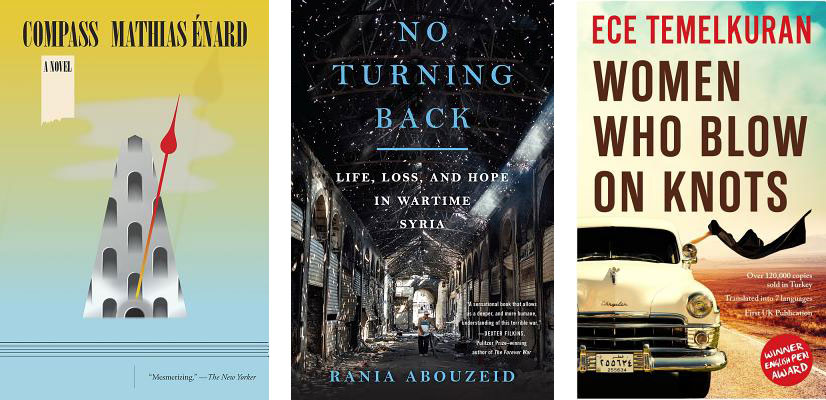
What are you reading now?
Mathias Énard's Compass, the most dense rich and brilliant novel about orientalism (in every sense of that word), love, and the impossibility of disentangling east and west.
What did you read last?
Rania Abouzeid's No Turning Back, which is an astounding work of journalism about how the Syrian revolution became the Syrian catastrophe.
What are you reading next?
Ece Temelkuran's Women Who Blow on Knots.
Erica C. Barnett got the scoop on a BONKERS story. It begins:
On Saturday, April 14, staffers at the downtown Seattle library discovered two alarming objects on its third-floor shelves: Two books, including South of Broad, a family drama by Pat Conroy, that had been hollowed out and filled with what appeared to library staffers to be two primitive homemade bombs, according to an internal library email about the incident.
The story is too good to ruin, so you have to go read the rest. It raises some important questions about training exercises, consent, and emergency preparedness.
The Help Desk: Cienna, I mustache you a question
Every Friday, Cienna Madrid offers solutions to life’s most vexing literary problems. Do you need a book recommendation to send your worst cousin on her birthday? Is it okay to read erotica on public transit? Cienna can help. Send your questions to advice@seattlereviewofbooks.com.
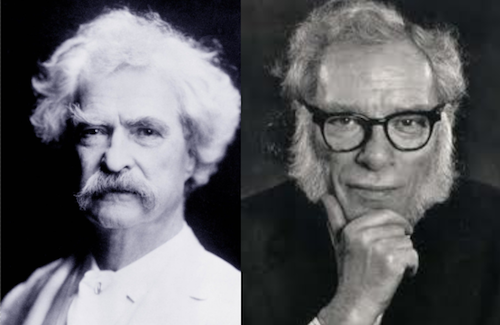
Dear Cienna
If you had to choose one style of facial hair to wear for the rest of your life, which would it be: Isaac Asimov’s muttonchops or Mark Twain’s soup-strainer?
Earl, Cherry Hill
Dear Earl,
Between the two, I would opt for Asimov’s muttonchops, which resemble a spider jungle gym and thus better fit my “basement chic” aesthetic. Plus, soup is for chumps with soft teeth.
But given my druthers, I would grow Salman Rushdie’s elegant chindalier. My native chin has the work ethic of a Trump – it is weak. In fact, if you stacked my chin on top of Don Jr.’s you’d still only have half an adult-sized chin per one goblin body. A chindalier would make my face more credibly human. Alas, there is no hope for Don Jr.
Kisses,
Cienna
